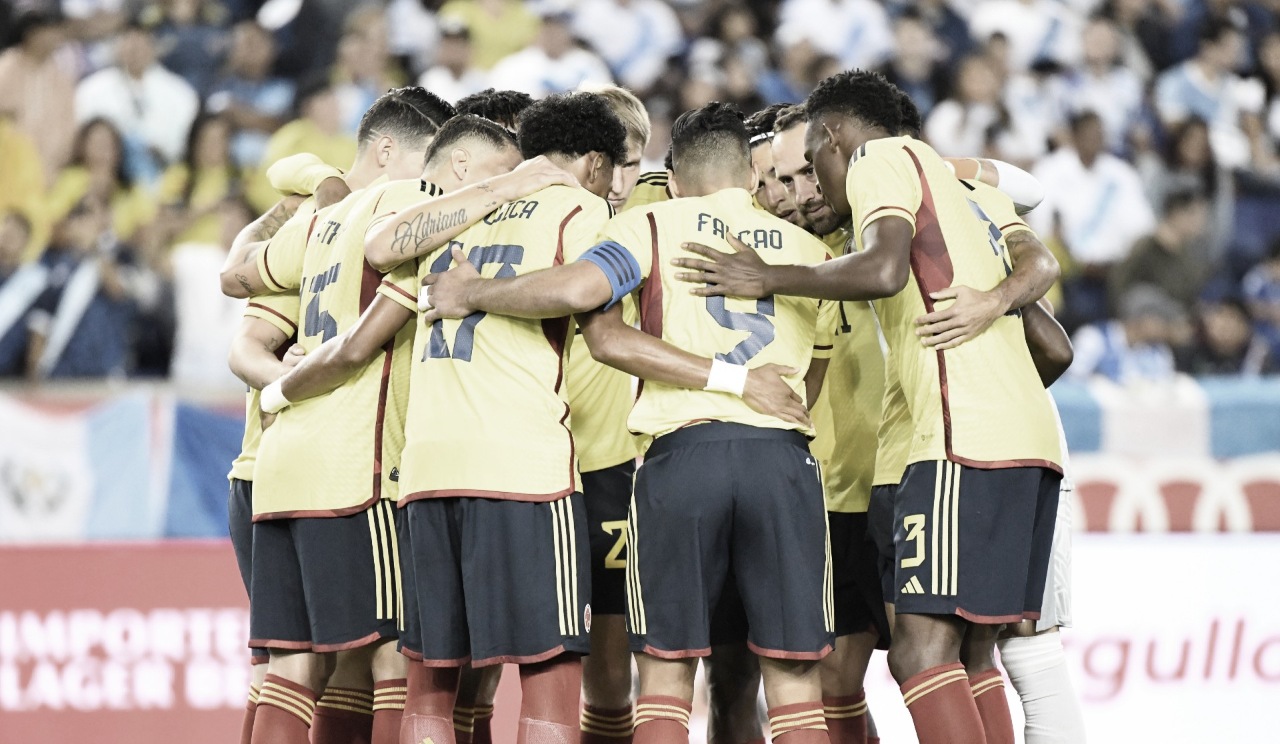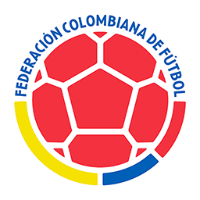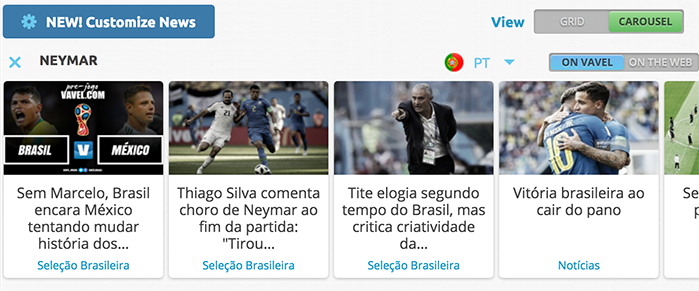

Colombia
1924
The Colombian national soccer team, known as "Los Cafeteros", has had a rich and varied history since its inception. The Colombian Football Federation (FCF), founded in 1924, is responsible for the administration of the team. The following is a detailed biography of the Colombian national team, highlighting its historical events and most important personalities.
Early Years and Initial Development
The first official match of the Colombian national team was played on February 17, 1926 against Costa Rica, ending in a 4-1 victory. This match was significant because it marked the beginning of international soccer for the country. The FCF joined FIFA in 1936 and Conmebol, thus establishing a solid foundation for the development of soccer in Colombia.
First International Participations
Central American and Caribbean Games
In 1938, Colombia participated in the Central American and Caribbean Games, winning the bronze medal. Later, in 1946, they won the gold medal in the same games. These first tournaments were crucial for the development of Colombian soccer and for establishing the team's presence on the international scene.
America's Cup
Colombia made its debut in the Copa América in 1945. Although their first participations were not successful, over time they consolidated themselves as a competitive team. The greatest achievement in this competition was in 2001, when they were proclaimed champions, being the first and only title of the national team in this tournament. They also reached the runner-up position in 1975 and reached the semifinals in several editions.
America's Cup 1975
The 1975 tournament was special because it was not played in a single host country, but in a round-robin format. Colombia, led by players like Willington Ortiz and Ernesto Díaz, had a remarkable performance. In the group stage, they faced Paraguay and Ecuador, managing to advance to the semifinals. In this stage, they defeated Uruguay, a South American soccer power, thus advancing to the final against Peru. Despite winning the first leg 1-0 in Bogota, Peru won the second leg 2-0 and the tiebreaker 1-0, leaving Colombia with the runner-up position.
1987 and 1993 America Cup
In the 1987 Copa América held in Argentina, Colombia showed a good performance, reaching the semifinals where they were defeated by Chile. Finally, they achieved fourth place after losing to Argentina in the match for third place.
In the 1993 edition in Ecuador, Colombia stood out again, reaching the semifinals. Under the direction of Francisco Maturana, the team showed a solid and cohesive game. However, they were eliminated by Argentina in the semifinals and later lost to Ecuador in the match for third place, finishing again in fourth place.
America's Cup 2001
The 2001 tournament is the most outstanding in Colombia's Copa América history. Held in Colombia, the national team won all its matches and did not concede a goal during the entire tournament, an impressive record. In the group stage, they defeated Venezuela, Ecuador and Chile. In the quarterfinals, they defeated Peru 3-0, and in the semifinals, they beat Honduras 2-0. In the final, a goal by Iván Córdoba against Mexico was enough to secure a 1-0 victory and give Colombia its first Copa América title. This achievement consolidated Colombia as an emerging power in South American soccer.
Copa America 2011 and 2016
In the 2011 Copa América, held in Argentina, Colombia had an outstanding performance in the group stage, finishing first. However, they were eliminated in the quarterfinals by Peru in a match that was decided in extra time.
In the 2016 Copa América Centenario, held in the United States, Colombia reached the semifinals. The team, coached by José Pékerman, showed a high level of play, with outstanding players such as James Rodríguez and Carlos Bacca. After losing to Chile in the semifinals, Colombia defeated the United States 1-0 in the match for third place, thus winning the bronze medal.
World Cup participations
1962 World Cup
Colombia made its World Cup debut in 1962 in Chile. The team was eliminated in the group stage, but made a significant mark with a 4-4 draw against the Soviet Union, with an Olympic goal by Marcos Coll, the only one in the history of the World Cup. This draw against the USSR, which had the legendary Lev Yashin in goal, was an important milestone for Colombian soccer and showed the team's potential on the international scene.
1990 World Cup
Colombia returned to the World Cup in 1990 in Italy, under the direction of Francisco Maturana. This tournament marked the resurgence of Colombian soccer at the international level. The team advanced to the round of 16, highlighting a 1-1 draw against West Germany with a memorable goal by Freddy Rincón. In the round of 16, Colombia was eliminated by Cameroon in a dramatic match decided in extra time. This World Cup was pivotal in establishing Colombia as an emerging force in world soccer.
1994 and 1998 World Cup
In 1994, the Colombian national team, with high expectations after an impressive qualifying campaign, was eliminated in the group stage. This tournament was tragic due to the murder of defender Andrés Escobar, who scored an own goal against the United States. In 1998, Colombia was again eliminated in the group stage, although it had outstanding players such as Carlos Valderrama, Faustino Asprilla and Freddy Rincón. These participations, although disappointing, consolidated Colombia's presence in international tournaments and paved the way for future successes.
2014 World Cup
The 2014 World Cup in Brazil was the most successful for Colombia. Under the leadership of José Pékerman, the team reached the quarterfinals, being eliminated by Brazil. James Rodríguez stood out as the top scorer of the tournament with six goals, including one against Uruguay that was considered the best of the tournament. James' performance, along with the team's solid performance, earned Colombia respect and admiration in the soccer world.
2018 World Cup
In Russia 2018, Colombia reached the round of 16. The team was eliminated by England in the penalty shootout. Yerry Mina stood out by scoring three headed goals, becoming the defender with the most goals in a single World Cup. Despite the elimination, the team's performance confirmed Colombia's ability to compete at the highest level.
Legendary Players
Carlos "El Pibe" Valderrama
Considered one of the best players in Colombia's history, Valderrama was known for his passing ability and vision. He played in three World Cups (1990, 1994 and 1998) and was a symbol of Colombian soccer for more than a decade. His blond hair and distinctive style made him recognizable around the world.
Faustino Asprilla
Asprilla was a talented striker known for his speed and technical ability. He played a crucial role in qualifying for the 1994 World Cup and had a successful career with European clubs, especially Parma in Italy. His charisma and style of play made him an icon of Colombian soccer.
René Higuita
Higuita, known for his eccentric style and the famous "scorpion move", was a goalkeeper who revolutionized his position. He was key in qualifying for the 1990 World Cup and is remembered for his courage and uncommon skills for a goalkeeper. His unique style and ability to play outside the box made him an unforgettable player.
James Rodriguez
James became a world star at the 2014 World Cup, winning the Golden Boot as the top scorer. His goal against Uruguay in the round of 16 was one of the most memorable goals of the tournament. James has had a successful career at European clubs, including Real Madrid and Bayern Munich, and remains a central figure in the Colombian national team.
Radamel Falcao
Falcao is one of Colombia's most prolific strikers. Although injuries have affected his participation in some tournaments, he remains an icon of Colombian soccer. His leadership and goal-scoring ability have been fundamental to the team's success in several competitions.
Outstanding Coaches
Francisco Maturana
Maturana is a key figure in the history of Colombian soccer. He coached the team at the 1990 and 1994 World Cups and led Colombia to its first international title, the 2001 Copa América. Under his guidance, Colombia adopted a more technical and attractive style of play, which raised the team's profile on the international stage.
Hernán Darío Gómez
Under his leadership, Colombia qualified for the 1998 World Cup. Gómez is known for his ability to motivate his players and his tactical skills. His leadership helped stabilize the team during a period of transition and kept Colombia competitive on the international stage.
José Pékerman
Pékerman revitalized the Colombian national team, taking them to the quarterfinals of the 2014 World Cup and the round of 16 in 2018. His focus on developing young talent has left a lasting impact on Colombian soccer. Pékerman is remembered for his ability to bring out the best in his players and for implementing a cohesive and effective style of play.


